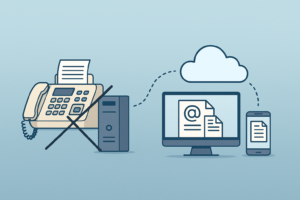As technology becomes an increasingly central part of everyday life, telecommuting is beginning to grow in popularity. More than 3 million people in the United States currently telecommute, and analysts expect that more than half of all employees could be working remotely in the near future, according to TMCnet contributor Mae Kowalke. Implementing mobility policies allows companies to experience improved employee collaboration and engagement, reduced costs and increased revenues, as well as allowing small businesses to even the playing field with larger companies.
In most offices employees have already embraced the new culture of mobile devices, using smartphones, tablets and laptops on a daily basis. Working for a company that realizes the benefits of mobility makes these workers happier in their jobs and more productive. At the same time, small businesses frequently report mobility has offered them the ability to work the way they've always wanted to but were prevented from doing so by cost or complexity, according to ZDNet contributor Krishan Sharma.
While mobile work policies improve employee engagement, they also offer small businesses a leg up. The tools and services now easily available on mobile platforms create a more level playing field, as systems and technologies that once required complicated IT management and were only affordable to large companies can now be accessed in simple mobile applications. The cloud is a key example of this, as a wide variety of applications and services are available through cloud platforms and can be scaled to meet specific needs.
Increase mobility with FoIP
Companies interested in implementing employee mobility policies and utilizing the cloud should consider employing fax-over-IP services. FoIP uses the Internet to send faxes and stores messages in the cloud, allowing documents to be sent and received from anywhere with access to the Internet. FoIP makes it possible for employees on the go to send important information in a reliable and secure way. When a message is sent with a fax-over-IP service, its content is saved on an organization's dedicated server and stored for as long as is necessary. The fax is then sent to a recipient's specified email address and can be received on any mobile email application. Documents stored in the cloud server become part of a searchable, archived database and are easily accessed on the go.
Enhance enterprise communication, collaboration and compliance efforts with a proven FoIP solution from FaxCore. Contact FaxCore today to learn more about their 'Partly-Cloudy' fax solutions.




